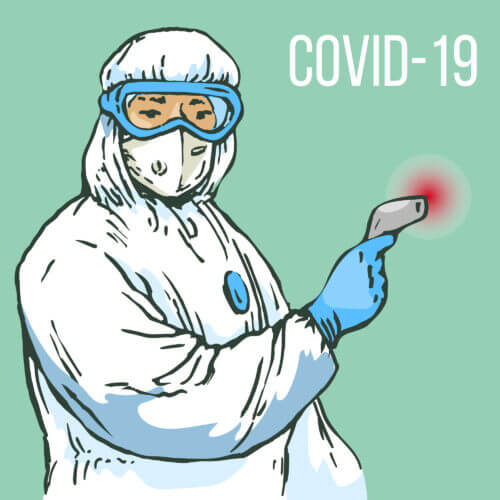Researchers at the Hebrew University of Jerusalem and Hadassah, who monitor the state of morbidity in Israel on a daily basis, published last night (Wednesday, 2.12.20) an up-to-date analysis of the Corona data that was sent to the relevant authorities, according to which there is stability in the morbidity that allows the adjustment of restrictions. "In the current state of morbidity, there is still a long time before it will be necessary to talk about a full closure, so it is possible to prevent reaching it through activity to reduce morbidity, because the continuation of the current activity leads to an increase in morbidity and the spread of the epidemic. It is necessary to increase enforcement and increase control in the outbreak centers, the main part of the current outbreak is local," the document's conclusions state.

The team of researchers notes with concern the apparent spillover into large cities, the cities of Be'er Sheva and Haifa, as well as between neighborhoods in Jerusalem. "Traveling between the cities makes it possible to identify the chances of an outbreak in the nearby cities", they point out. As an example, they cite the connectivity between nearby cities, the spread of the disease from Asfia to Dalit al-Carmel, Haifa, Beit Oren, Kiryat Tivon, Aloniim, Aloni Abba, Bethlehem, Basmat Tivon and more.
The researchers who signed the report, Prof. Yanon Ashkenazi, Dr. Doron Gazit, Dr. Ronit Kalderon-Margalit, Prof. Ran Nir Paz and Prof. Nadav Katz, They even compare the findings to the Netherlands, Germany and Switzerland, and claim that the outbreak can be curbed even given an open education system: "According to these countries, there is an interaction that removing trade restrictions is a main factor in stopping the decline after stricter restrictions." The researchers compared data within Switzerland, in the Geneva region versus the Zurich region, both with active education systems, with the main difference being the restrictions on trade - in the Geneva region there is an encouragement to work from home and a ban on opening non-essential shops, while in Zurich there are no such restrictions. The differences are evident between the cities, when in Geneva the infection coefficient is 0.5 while in Zurich it is almost double - 0.9. "The restraint of trade operations led to the control of the outbreak," the researchers state in their report.
According to the researchers, in Israel, at this stage, the number of new patients in serious condition continues to decrease, due to deaths and discharges. The increase in the number of new patients in severe or moderate condition and patients identified are less than 50 percent of the data that were in mid-August. "At the current stage, the morbidity is concentrated in certain cities, but a 'spillover' process is evident to cities close to them," the researchers warn, adding that the effective infection coefficient, calculated from the addition of new patients in severe or moderate condition, is 1.
The researchers published their recommendations in the document, where, among other things, they claim: "Local closures and mass testing are needed in areas of morbidity", "Restrict access to commerce according to residential areas (it is allowed to enter the mall on certain days according to residential area), in order to ensure a reduction in connectivity in commerce and a reduction in congestion", And "It is important to preserve educational activity. There is no need to limit education at this stage, except for high levels of morbidity".
